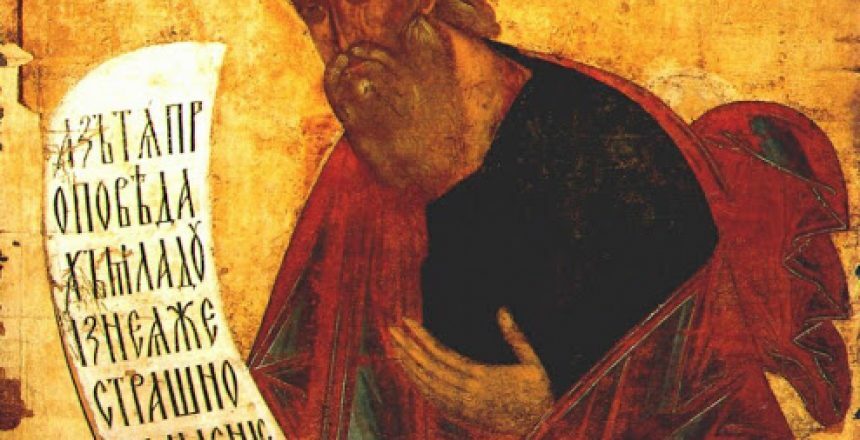
Bible Study on Zephaniah
https://bibleproject.com/guides/book-of-zephaniah
Background
- Author: Zephaniah (“YHWH has hidden” or “protected”) is introduced with an unusually long genealogy (Zeph. 1:1), possibly linking him to King Hezekiah. This would make him of royal blood, speaking with authority during the reign of Josiah.
- Setting: Before Josiah’s reforms entirely took hold (c. 640–609 BCE), while idolatry and corruption still pervaded Judah.
- Focus: The coming Day of the LORD, judgment against both Judah and the nations, and the promise of a purified remnant.
Historical and Political Landscape
The Reign of Josiah (ca. 640–609 BCE)
- Zephaniah prophesied during the reign of King Josiah of Judah.
- This was a time of significant upheaval in the Ancient Near East:
- Assyria: The once-dominant empire was collapsing after decades of power.
- Babylonia: Rising under Nabopolassar and later Nebuchadnezzar, preparing to replace Assyria as the new superpower.
- Egypt: Attempting to reassert influence in the Levant, filling the vacuum left by Assyria.
- Within Judah:
- Josiah initiated religious reforms (2 Kings 22–23), purging idolatry and centralizing worship in Jerusalem.
- However, Zephaniah’s message suggests that despite reforms, idolatry and injustice remained deeply ingrained in society.
An impending international crisis and the urgent need for covenantal faithfulness in Judah thus frame Zephaniah’s prophecy.
Chapter 1 – The Day of the LORD Against Judah
Key Verse:
“The great day of the LORD is near, near and hastening fast; the sound of the day of the LORD is bitter; the mighty man cries aloud there.” (Zephaniah 1:14)
Themes
- Total Judgment: Sweeping language (“I will sweep away man and beast,” 1:2–3) stresses the seriousness of covenant breaking.
- Idolatry condemned: Syncretistic practices—worshiping Baal, Molech, and the stars (1:4–6).
- Complacency rebuked: God’s judgment will catch the indifferent off guard.
Jewish Perspective
- The Day of the LORD is not only punishment but a wake-up call.
- Rashi comments that the terror described here is not random, but God’s precise justice against idolatry and corruption.
- The idea of cosmic judgment aligns with Genesis flood motifs: humanity’s corruption brings sweeping consequences.
Chapter 2 – Judgment on the Nations
Key Verse:
“Seek the LORD, all you humble of the land, who do his commands; seek righteousness, seek humility; perhaps you may be hidden on the day of the LORD’s anger.” (Zephaniah 2:3)
Themes
- Call to Repentance: Before judgment, there is an urgent call to seek humility and righteousness.
- Judgment against nations: Philistia, Moab, Ammon, Cush, Assyria—all surrounding nations face God’s judgment (2:4–15).
- Nineveh’s fall foretold: (2:13–15) echoes the prophecies of Nahum.
Jewish Perspective
- The Torah principle applies: “I will bless those who bless you, and him who dishonors you I will curse” (Gen. 12:3). Nations are accountable for their treatment of Israel.
- Zephaniah 2:3 introduces the concept of the anavim (humble ones)—later Jewish thought associates this with the faithful remnant who will survive due to humility and obedience.
Chapter 3 – Woe and Restoration
Key Verses:
“The LORD your God is in your midst, a mighty one who will save; He will rejoice over you with gladness; He will quiet you by His love; He will exult over you with loud singing.” (Zephaniah 3:17)
Themes
- Corrupt leadership: Officials are “roaring lions,” judges are “evening wolves,” prophets are i
- Universal Purification: God will purify the lips of all peoples to call on His name with one accord (3:9).
- The Remnant: Humble and righteous survivors will live securely (3:12–13).
- God’s Joyful Presence: The book ends with an intimate vision of God rejoicing over His people.
Jewish Perspective
- Verse 9 reflects a messianic hope—all nations serving God with “one pure language.” Some rabbinic interpretations connect this to the reversal of Babel.
- Verse 17 portrays a radical intimacy between God and Israel: not only does God save, He rejoices and sings over His people. This is a picture of the Shekhinah dwelling among Israel.
- The “remnant” theme reinforces Jewish history: survival and renewal even after catastrophe (Exile, Holocaust, etc.) is seen as God’s hand preserving His covenant.
Summary of Zephaniah’s Message
- Universal Judgment – God’s holiness demands accountability from Judah and the nations alike.
- Repentance and Humility – The path to survival is not military power but humility, righteousness, and obedience.
- The Remnant – God always preserves a faithful core, ensuring the covenant continues.
- Hope of Restoration – Judgment gives way to renewal; God Himself rejoices in His people.
